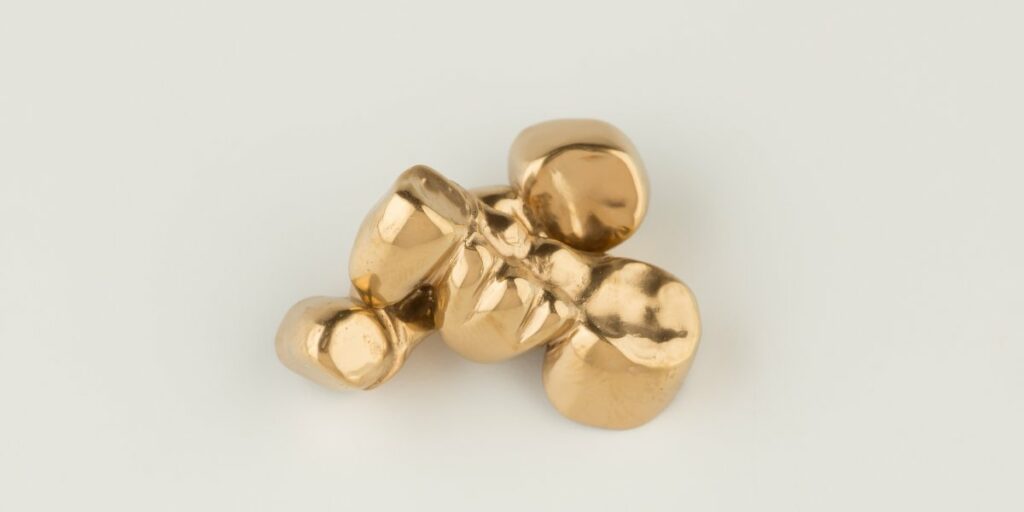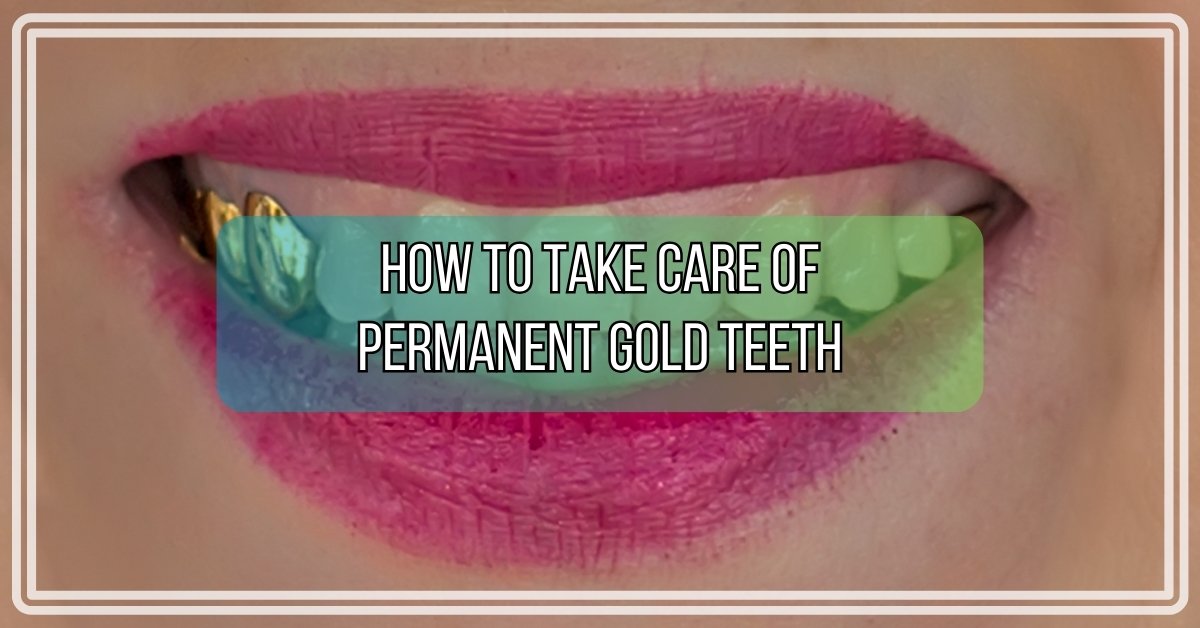Taking care of permanent gold teeth is essential for the longevity of the dental work and for maintaining overall oral health. Gold teeth, whether for cosmetic enhancement or dental restoration, require attention and care to keep them shining and in perfect condition. If you’ve invested in gold teeth, here’s how to ensure they remain a dazzling part of your smile.
How long do permanent gold teeth last?
On average, gold crowns can last 20 to 40 years, thanks to their exceptional durability and fit for dental restorations.
Gold caps or castings maintain a more accurate fit on your tooth than porcelain crowns, which are prone to shrinking and potentially altering the fit over time. This precise fit minimizes the risk of decay around the tooth beneath the crown, contributing to the longevity and health of your dental restoration. However, just like your natural teeth, gold teeth can accumulate plaque and tartar, leading to gum disease and other oral health issues if not properly cared for.

Permanent gold teeth are not just a statement of wealth or style but also a commitment to dental health. Gold is used in dentistry due to its durability, biocompatibility, and ease of workmanship.
Daily Cleaning Routine for Gold Teeth
A solid daily cleaning routine is the cornerstone of caring for your gold teeth. Brushing twice a day with a soft-bristled toothbrush and fluoride toothpaste is crucial.
The soft bristles ensure the gold surface is not scratched, preserving its shine and finish. Pay special attention to the gum line when brushing, as plaque tends to accumulate there.
It’s also important to floss daily. Flossing removes food particles and plaque between the teeth and under the gum line, areas your toothbrush might not reach.
What’s the best toothpaste for gold teeth?
The best toothpaste for gold teeth is non-abrasive and designed for sensitive teeth or dental work. Abrasive toothpaste can scratch the gold surface over time, diminishing its shine and smooth finish.
Look for toothpaste that contains fluoride to protect the surrounding natural teeth from decay but doesn’t have harsh whitening agents or baking soda, which can be too abrasive for gold surfaces.
Toothpaste formulated for sensitive teeth often lacks these abrasive components, making it a safe choice for maintaining gold restorations and natural enamel. Additionally, some toothpastes are specifically marketed as safe for dental work, including crowns, bridges, and implants.
Always check the packaging or consult with your dentist to ensure the toothpaste you choose is appropriate for your gold teeth. This will keep them looking their best without causing damage.
Regular Dental Check-ups and Lifestyle Habits
Regular visits to the dentist are vital for anyone, but they’re especially crucial if you have permanent gold teeth.
Your dentist can provide professional cleanings that remove tartar buildup, which you can’t do at home with just brushing and flossing. These visits are also an opportunity for your dentist to check the condition of your gold teeth and ensure no issues develop, such as loosening or damage to the gold or the surrounding teeth.
What you eat and drink can significantly impact the health of your gold teeth. Sugary foods and drinks should be consumed in moderation. Sugar interacts with bacteria in your mouth to form acids that can lead to tooth decay and gum disease.
While gold cannot decay, the areas around the gold teeth are vulnerable.
Similarly, avoid hard and sticky foods that can damage or dislodge your gold teeth. If you’re a coffee or wine drinker, be aware that these beverages can stain the teeth adjacent to your gold ones, leading to a mismatched appearance over time.
Smoking and the use of tobacco products can lead to staining and increase the risk of gum disease, affecting not just your gold teeth but your entire mouth.
If you’re a smoker, consider quitting or reducing your tobacco use to protect your oral health. Additionally, practicing good overall hygiene and health habits, like drinking plenty of water and eating a balanced diet, will benefit your gold teeth as much as your natural ones.
How do you treat gold teeth discoloration?
Gold does not tarnish or rust, but it can sometimes appear less shiny or bright due to plaque buildup or using certain mouthwashes containing chlorhexidine, which can cause staining. If you notice any discoloration, visit your dentist for a professional cleaning.
Do not use abrasive materials or harsh chemicals to clean your gold teeth; these can scratch the surface and do more harm than good.
Caring for permanent gold teeth involves a combination of good daily oral hygiene practices, regular dental check-ups, and mindful eating and drinking habits. It’s about protecting your investment and ensuring your smile remains bright and healthy for years. Remember, the care you put into maintaining your gold teeth reflects not only on your oral health but also on your overall health. With the right care, your gold teeth can be a lasting and trouble-free addition to your smile.

